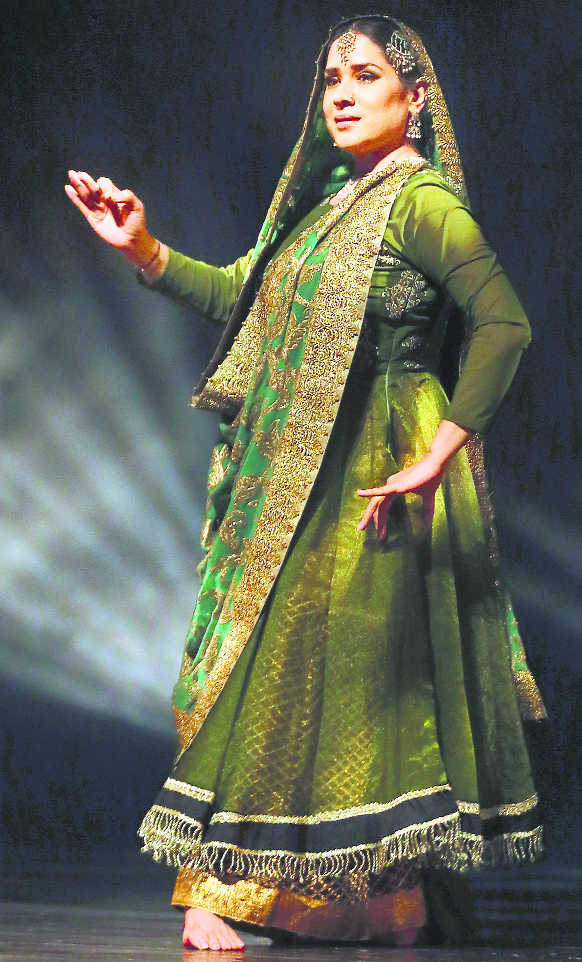
Lovedeep Sidhu
Jugni jaa varhi asmaan
Othe vekhe kull jahaan
Mandir masjid sankh azaan
Chaaunh darwazin lokin aan
La la chubbian kar ishnaan
Lai lai naam guran da jaan
— Verse by Madan Gopal Singh
An integral character of Punjabi folklore for over a century, Jugni has represented a feisty, wandering girl, the idea of rebellion or a free-spirited energy out to defy a patriarchal society. Despite the various connotations attached to her, Jugni’s spirit has remained effervescent, her anecdotes witty and profound in equal measure. Manjari Chaturvedi’s musical, O’ Jugni Punjab Di, celebrates the traditional music and poetry of Punjab in an attempt to remind us of the Sufi saints and their mystic utterances that we have conveniently chosen to forget.
“When I read Baba Bulleh Shah’s poetry, it struck a chord with me. I felt that it was incredible and at par with Rumi’s. Yet, it hadn’t reached as many people as it should have. Once I felt that I was ready to perform on it, I did a series on him,” she tells us.
O’ Jugni Punjab Di could well be the first rendition of a story of Punjab using classical Indian dance. With music by Ustad Ranjhan Ali, script by Jasdeep Singh and narration by actor Balkar Sidhu and Vikramjit Singh Rooprai, it has managed to pique the curiosity of even non-Punjabis. “The 90-minute performance recounts many tales — from that of Heer-Ranjha and Sohni-Mahiwal to the Punjabi diaspora that was actively travelling during the rule of the British, leaving behind women who developed the ‘tappe’ in their free time. Then, there is also talk of spirituality, which is important because Punjab has had the maximum number of Sufi saints in the country — Hazrat Sultan Bahu, Waris Shah and Baba Farid, to name a few. There is also modern satire in reference to the current social context. People forget that Jugni can evoke laughter as well as touch upon unsettling issues,” says Chandigarh-based writer Jasdeep.
Manjari spent eight months learning about Jugni, finding herself immersed in the character of a woman for whom social norms weren’t applicable. “What I found interesting was that Jugni was written by men, yet she was upfront and transgressive. Arif Lohar made Jugni popular, but people still didn’t know what Jugni is about,” she says. Manjari believes that the ethos of Punjab’s music and poetry have got lost in popular culture, and decided that it must be told in the voice of Jugni.
Born in Uttar Pradesh, she feels a strong association with Punjab. Her love for Sufi mysticism led to the launch of the Sufi Kathak Foundation in 1998. “I am a storyteller, and kathak is the language I use to tell stories that don’t let me sleep. Twenty years ago, I believed that stories that taught about love for one another were important — like those by Kabir. Then, about eight years ago, I told the tales of the courtesans,” says Manjari, whose project on the women court dancers, The Lost Songs of the Courtesans, was dedicated to removing the stigma attached to these unsung artistes who were an important repository of Urdu culture.
“Over time, women’s topics have been brushed under the carpet. There is a need to document their stories,” she adds. Femininity plays an important role in most of Manjari’s performances. “You can’t escape it when connecting to God. Sufi poets have often talked in women’s perspective.”
The danseuse wants O’ Jugni Punjabi Di to come to Punjab, saying every Punjabi woman is a Jugni. “These tales are timeless. I want our own people to know more about them, especially the youngsters,” says Manjari, who dreams of working on the poetry of Hafez next.



























